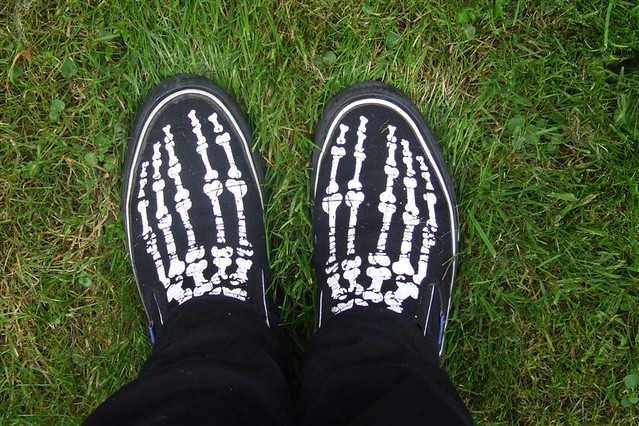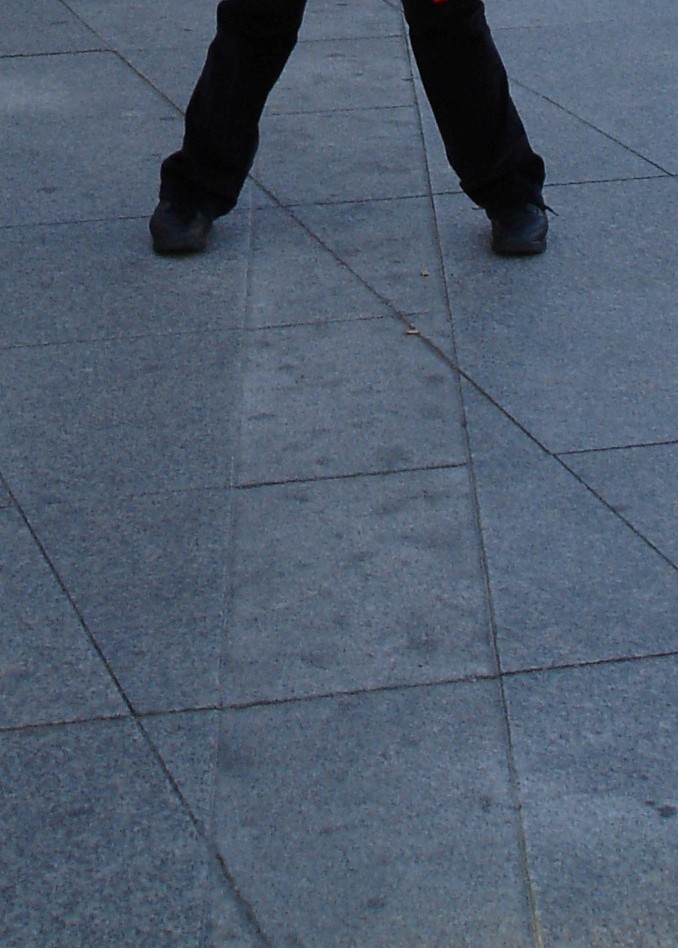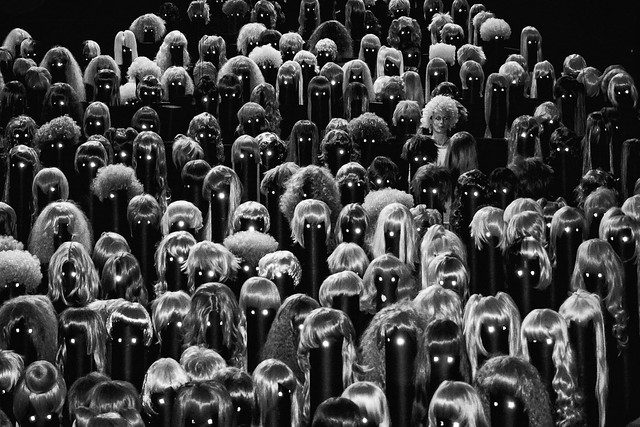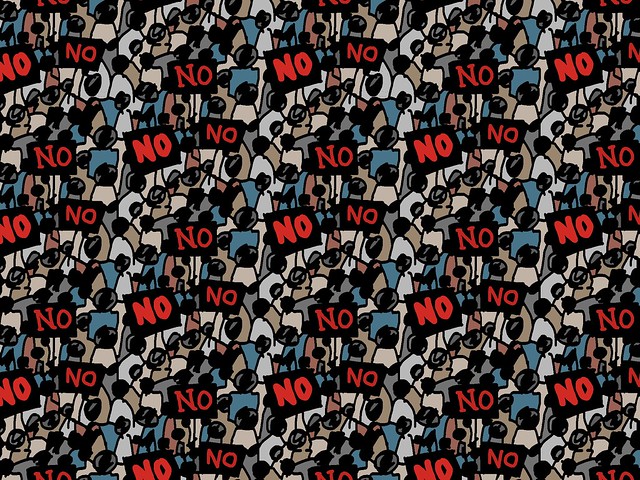 (Image by Gema used under CC 2.0 via)
(Image by Gema used under CC 2.0 via)
“Hey, I had a test question about achondroplasia today!” an old roommate of mine reported to me a few years back. He was a medical student and had been studying for his licensing exam.
“Oh, yeah?” I asked. “What was the question?”
“Whether or not achondroplasia affects intelligence.”
“And the answer was…?” I smiled.
“The answer was no,” he replied, returning the smile.
That this was a test question implies a necessity for teaching this fact. Indeed, for a good part of modern history, children with achondroplasia and other types of dwarfism were too often assumed to be intellectually disabled and placed in institutions or special ed classes for life. Hence a meme from Little People of America that’s been floating around the Internet in honor of Dwarfism Awareness Month: “A common misconception about people with dwarfism is that they are cognitively delayed or mentally impaired. This is NOT true.” Activism will remain crucial until this misconception is no longer common.
What are the chances that it ever will be? Equality and empathy are the heart of every human rights movement, but these ideas alone did not disprove the idea that lower than average height is indicative of lower than average intelligence. Science did that. The scientific method uncovers the facts. Political activism spreads the word.
Despite what some extremist conservatives claim, science doesn’t have a liberal bias. It often reveals facts upsetting to many. For example, contrary to some Dwarfism Awareness campaigns, people with achondroplasia cannot be anything they want to be. They cannot be construction workers, gymnasts, military combatants, weight lifters, or participate in most contact sports because the achondroplastic spinal column is compressed, rendering these activities more life-threatening for us than for most people. That’s a scientific fact.
It need not be a cause for regret. I don’t consider a life without the ability to participate in contact sports or construction work any less enriching than a life without the ability to sing on key or identify bird calls or cut hair or write without spellcheck. (When I’m feeling snarky, I steal a line from this movie: “Dear White People on Instagram: You own an iPhone and you go on hikes. We get it.”) Competitive and aggressive feats of strength can be a way to be a stronger person, but they are not the only way. You can tell me a million times that I cannot safely lift anything heavier than a small child over my head and I will never take it as an insult.
What is insulting is to tout broad assumptions about conditions and bodies as facts when they have not been corroborated by several studies. Someone with dyslexia is unlikely to master a word scramble, but that does not mean she cannot be a skilled writer. Someone with Down Syndrome cannot practice medicine, but that does not mean he cannot get a job. If you hear that people with dwarfism cannot have a high IQ, teach, drive, play tennis, perform surgery, give birth, or take care of children, these are not facts. They are assumptions. Yet they have been dispersed far and wide, terrifying far too many people with dwarfism and their parents.
Having a rare genetic mutation has taught me that teaching science to the masses is hard. Most of us who are not scientists develop our understanding of medicine based on doctor’s visits, pop science news articles, and hearsay, as opposed to peer-reviewed research published in medical journals or textbooks. This is to be expected—when was the last time I read a medical journal straight through?—but it results in all sorts of inaccurate and potentially dangerous assumptions.
When I recently tried to explain to some new friends that the gene for achondroplasia is dominant, one insisted, “Achondroplasia can’t be dominant because then most people would be dwarfs!” Wrong.
When my parents visited one of their first Little People of America meetings shortly after I was born back in the early Eighties, one volunteer said, “Dwarfs don’t live as long as average-sized people do because they have to walk twice as many steps in their lifetime.” Also wrong. The most common cause of lower life expectancy among dwarfs throughout history has been a lack of access to appropriate health care due to social marginalization.
When a journalist asked the owner of a Hollywood freak show last year why one of his main performers had died at the age of 32, he replied, “A lot of them don’t have long life spans. Little hearts and the whole thing.” The reporter revealed in his excellent exposé of the depressing freak show business that the performer in question died of alcoholism.
My career as a writer has helped me see how much we love stories that are both out of the ordinary and easy to understand. My dwarfism has caused me to be confronted with the ubiquity of scientific misinformation in these stories and has helped me see how xenophobia facilitates the lazy thinking perpetuating scientific myths about minorities. Black Americans can’t swim? More like they were barred from learning how. Half of gay male teens have AIDS? File that one next to the Victorian belief that masturbation causes blindness. Women don’t have the skills to be Silicon Valley programmers? In Western cultures where men are expected to be bread-winners, women have been dissuaded from pursuing the highest-earning jobs, whether we’re talking about doctors and nurses, professors and school teachers, or milk men and milk maids.
This is why I approach most scientific and medical “facts” uttered to me with a heavy dose of skepticism. This can be draining. Some days I would like to simply trust Google or a Facebook Group for dwarfs instead of having to track down out-of-print medical textbooks or wait months for my orthopedist to have a free appointment in order to find it out if I should be concerned about osteoporosis or fibroids. But doubt is the fuel of innovation and vigorous research ultimately harms no one.
And when facing complex disabilities and learning about what certain bodies absolutely can and cannot do, we should not confuse being talented with being good. Just as it is hard for us to resist a fascinating story, it is hard for us to resist the idea that strength of body and mind also indicates strength of character. But acing any sort of competition says little about your ability to be brave, honest, generous or humble. Need proof? Celebrity scandals are but a Google search away.
Tags: Achondroplasia, Dwarfism, Genetics, health, Intelligence, medicine














